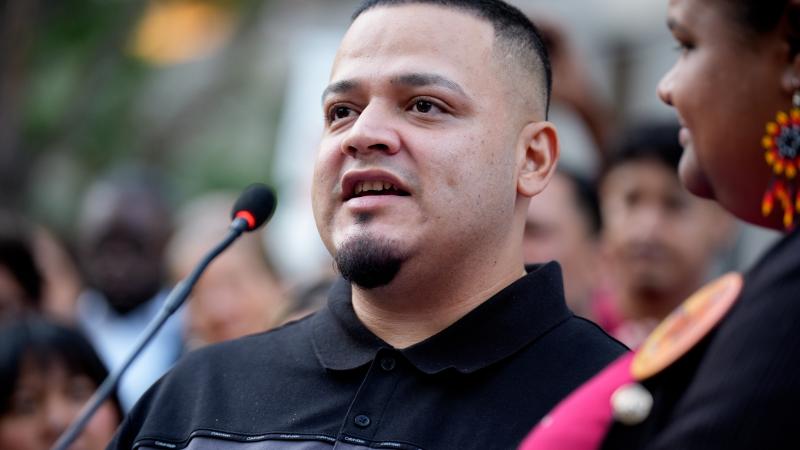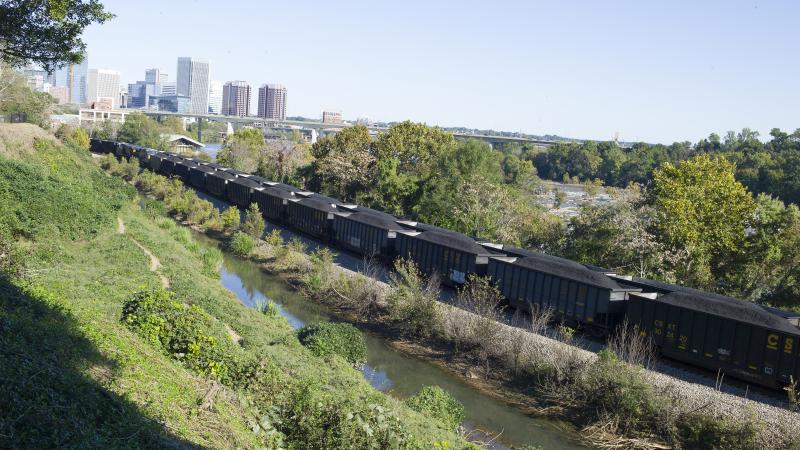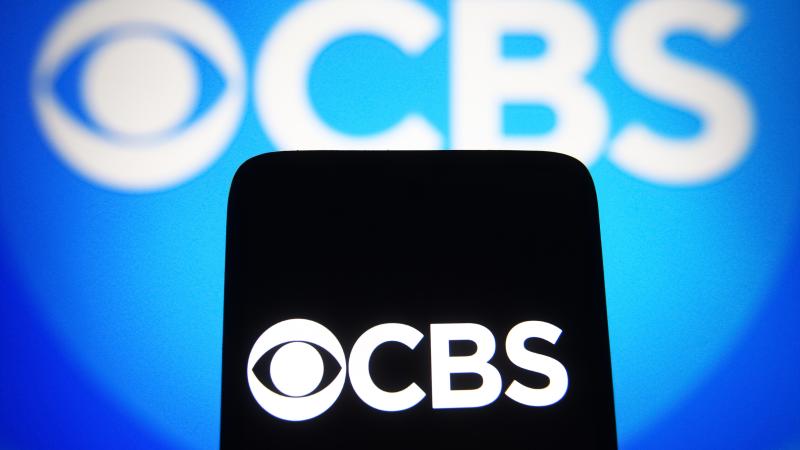Trump used his first foreign trip to further isolate Iran, and forced Tehran to blink
If Trump’s peace proposals and partnerships with Syria, Saudi Arabia, Qatar and other Gulf nations congeal, it would mean unprecedented peace in the region and fewer American resources, lives and treasure expended there.
In the final days of President Donald Trump's excursion across the Middle East, Iran was clearly experiencing a serious case of FOMO (Fear of Missing Out.)
Tehran's longtime allies like Syria and Qatar were cozying up to the American president with lavish celebrations and salutes and ponying up $1.2 trillion in U.S. investments, shifting them further toward an Arab-Israeli-U.S. alliance.
On Thursday, Tehran blinked.
Top Iranian official Ali Shamkhani said that his country is ready to make a deal with Trump. Under the deal, Iran would agree to never make nuclear weapons and destroy their existing stockpile in exchange for Trump lifting crippling sanctions against Iran.
The capitulation sent shockwaves around the globe, including in Congress.
"I don't think that they bent. I think that they folded," Rep. Brad Knott, R-N.C., a member of the House Homeland Security Committee, told Just the News on Thursday when asked about Iran. "There was nothing voluntary.
"President Trump came in. He immediately put diplomatic pressure. He immediately put financial pressure, and he basically had two barrels loaded, metaphorically, of course, at the Iranian regime, and said, 'you can roll the dice, but you're not going to have a country left, and you're not going to have any ability to survive this if you keep playing this game.'"
In a part of the globe that has never been without conflict since the beginning of recorded history with the Israelites, Trump has turned his deal-making strategies to isolate Iran.
Its goal is a long-elusive peace between the existing Abraham Accord participants and more who join, and an Iran that gives up its nuclear weapons and terrorist ambitions.
On Monday when Trump visited Saudi Arabia, his arrival was treated by the Arab country as that of a revered royal. More importantly, the demonstrable respect between Saudi Arabia's crown prince, Mohammed bin Salman, and Trump, was apparent to all, including Trump's detractors.
Speaking to a ballroom of attendees at the Saudi investment forum, Trump described the development boom in Saudi Arabia as a "modern miracle the Arabian way," stressing his aversion to U.S. nation-building tendencies and highlighting the strong relationship the U.S. has enjoyed with the Gulf nation since President Franklin Roosevelt's meeting with King Abdulaziz in 1945.
The American president also praised the extraordinary transformation over the last eight years, with "majestic skyscrapers" and exploding business development.
The state visit proved fruitful with multiple victories, including a $142 billion defense sales agreement, bilateral agreements covering energy, mining and security cooperation, and a $600 billion investment agreement over the next four years.
In addition, Qatar agreed to pay $200 billion for a new fleet of Boeing jets, a major infusion for an American aerospace giant that has struggled in recent years.
The refreshed relationship with Saudi Arabia and the historic investments would have made for an extremely successful voyage on its own.
But at that same investment forum, Trump announced that he was lifting sanctions on Syria, revealing a new mission across his five-day trip to isolate Iran and force their compliance in negotiating with the United States.
"After discussing the situation in Syria with the Crown Prince, your Crown Prince, and also with President Erdogan of Turkey...I will be ordering the cessation of sanctions against Syria in order to give them a chance at greatness," Trump told the room of business and political leaders.
He expressed sympathy for what the people of Syria have endured: "In Syria, which has seen so much misery and death, there is a new government that will hopefully succeed in stabilizing the country and keeping peace. That's what we want to see in Syria.
"They've had their share of travesty, war, killing, many years. That's why my administration has already taken the first steps toward restoring normal relations between the United States and Syria for the first time in more than a decade," he added.
The new government he spoke of has Ahmed al-Sharaa as its interim president, who was appointed earlier this year in January following the overthrow of Bashir al-Assad in December 2024. Al-Sharaa, also known as Abu Mohammad al-Julani, was a member of al-Qaeda who once had a $10 million bounty on his head.
Following the announcement at the investment summit, Trump met privately with the Syrian leader, which was the first time a U.S. president held a meeting with a Syrian leader in 25 years.
During that meeting, Trump dictated five terms in order to maintain sanctions relief. First and foremost, Trump urged Syria to recognize the state of Israel by joining the Abraham Accords.
He also said Syria needs to expel all foreign terrorists from their country, deport Palestinian terrorists, help the U.S. prevent the resurgence and proliferation of ISIS, and assume control of ISIS detention centers in the northeast part of the country. If these terms are met, that puts Syria in a position of direct opposition to Iran.
In addition to Trump's pivotal public remarks and private meeting with al-Sharaa, Trump's comments on Lebanon during that same speech debuted a very attractive carrot for that nation to abandon its ties with Iran and Hezbollah.
"Lebanon, which has been endlessly victimized by Hezbollah and their sponsor, Iran, a new president and prime minister brought the first real chance in decades for a more productive partnership with the United States," Trump said.
Following the death of Hezbollah leader Hassan Nasrallah and multiple military defeats during their war with Israel, multiple vacancies at the top of Lebanon's power structure needed to be filled. Lebanon's new, non-Hezbollah president is a man whose leadership was orchestrated by the administrations of both former President Joe Biden and Trump, and on January 9, 2025, General Joseph Aoun became the 14th president of Lebanon.
Making sure the message was clear, Trump told the captive crowd, "My administration stands ready to help Lebanon create a future of economic development and peace with its neighbors. You have tremendous people in Lebanon: doctors, lawyers, great professional people. I hear it so many times."
The environment and time for prospective peace is apparent to Rep. Marlin Stutzman, R-Ind., who told the Just The News, No Noise television show that Trump's diplomatic foray into the Middle East is a "once in a generation" opportunity to push out violent Iranian proxies.
"Lebanon has the same problem, and Hezbollah has been pushed out," he said. "President al Sharaal from Syria, he even takes some of the credit for that. He said that he had pushed out Hezbollah, and also pushed out the Iranians out of Syria, and Lebanon seems to be on a good track."
Prior to these attractive incentives for an alliance, economic or otherwise, with Syria and Lebanon, Trump had already planted the seeds for Iran's isolation, with the Houthis.
Last week, during a bilateral meeting with new Canadian Prime Minister Mark Carney, Trump announced the Houthis had expressed a desire to cease fighting, specifically stating they would stop targeting commercial ships in the Red Sea. This led to a U.S. decision to halt its bombing campaign in Yemen, as part of an Oman-mediated ceasefire deal.
Dr. Walid Phares, a former national security and Middle East advisor to Trump, said the president's latest moves have significantly isolated and pressured Iran.
"When he [Trump] has Saudi Arabia, Bahrain, UAE, Qatar and obviously other nations who deal with Iran, who are afraid of Iran as a regime. Obviously, when I say Iran, I mean the Islamic regime. That's a huge success. That's the pressure," Phares said.
Knott, the North Carolina congressman, said while there is now legitimate optimism a deal with Iran can be struck, details and enforcement are key.
"We must trust and verify," he said. "But again, I'm very encouraged that the Iranian people and the Iranian government especially seem to be coming around and willing to disembark on this dangerous path."














